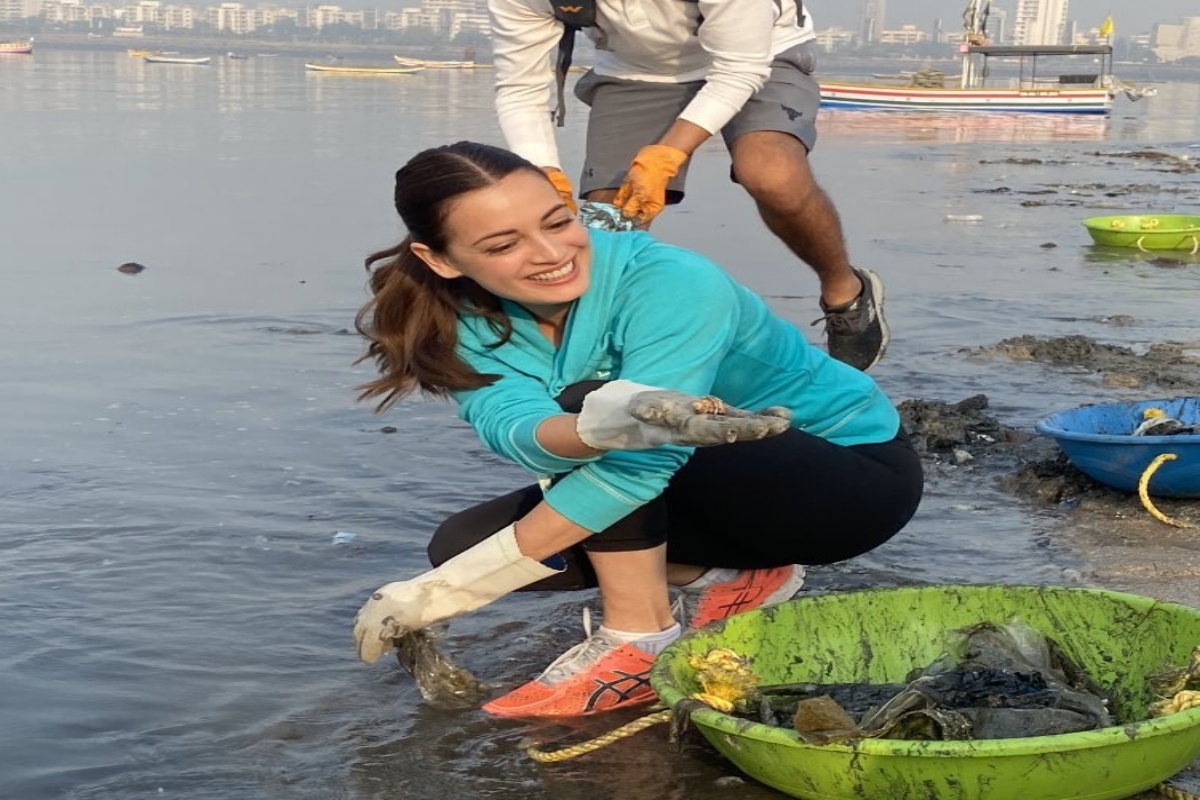Environment activist and Bollywood actor Dia Mirza has reiterated her concern over marine ecosystems, habitats and resources being vitiated and destroyed by pollutants, plastic waste, overfishing and unsustainable business practices.
The UNEP Goodwill Ambassador and climate champion tells IANSlife: “As human-beings, our well-being is closely connected to marine biodiversity, healthy ecosystems and ocean habitats. Oceans cover over 71 per cent of the earth’s surface and are closely interlinked to global climate. Without them, life in any form, cannot thrive.
Advertisement
Dia says, “Every year, around 8 million tons of plastic ends up in our oceans and we are responsible for 80 per cent of the debris and sediments that devastate marine life. How can we change that? We can start thinking about this issue to start with and then figure out how we can make a difference.”
Dia shares five tips that will help you do your bit to keep the oceans clean and healthy:
Stop using single use plastic that ends up in oceans and landfills
Straws, coffee cups, takeaway containers and plastic bottles that we throw away after using once, end up in oceans. As do microbeads in cosmetics which when washed into the oceans, are ingested by marine organisms. We can just start thinking about what happens to things after we have used and discarded them. To start with, carry your own water bottle, a metal straw, cutlery and a coffee cup everywhere you go. Switch to biodegradable toothbrushes and sanitary products and refuse plastic shopping bags and carry your own. There may be more plastic than fish in our oceans by 2050 and even now, countless marine animals die everyday because of plastic. The amount of plastic in our oceans may double by 2030 but we can help prevent that, starting today with small, mindful steps.
Volunteer for beach clean ups
If you live in a city like Mumbai where beaches are such an intrinsic part of life, you can volunteer for beach clean up drives. If you are a tourist, you can just make sure you don’t litter, clean up after yourself and pick up trash if you come across any. Donating to organisations that are fighting to keep the oceans healthy, can be another good way to help.
Make sustainable choices in everyday life
Harsh detergents that we use for washing clothes can harm marine life by entering oceans through our sewer systems. We can all prevent that by finding organic alternatives. Our food choices also affect marine health directly as unsustainable fishing practices are depleting fish populations. While consuming products and delicacies, we can just be a little mindful and ensure that we are not enjoying the exploitation of endangered species. Also saying no to coral jewellery is a good way to show some love to the oceans. Remember also to not flush sanitary napkins and pet litter down the toilet.
Reduce your carbon footprint
Greenhouse gases like carbon dioxide trap heat in the atmosphere and warm our planet. Carbon dioxide is also known to make our oceans more acidic and cause damage to corals globally. We can help change that by reducing our carbon footprint and energy consumption. Turning off the lights when they are not needed is just one way to start making a difference but the more you study how vital and vibrant our oceans are, the more ways you will find to cut down on energy consumption at home and while travelling.
Ask for greener policies that support our environment
Use your voice and your vote to choose public officials who will work for and not against our oceans, forests and ecosystems. Research if your representatives are doing enough to protect marine life and demand better practices from businesses as well. We can no longer look away from how big businesses release effluents, dump waste in our oceans and end up destroying its biodiversity. Marine plants produce more than half of the planet’s oxygen and our survival depends on the health of the oceans. Let us do what we can to help because as the first female chief scientist of the U.S. National Oceanic and Atmospheric Administration Sylvia Earle said famously, “No water, no life. No blue, no green.”











